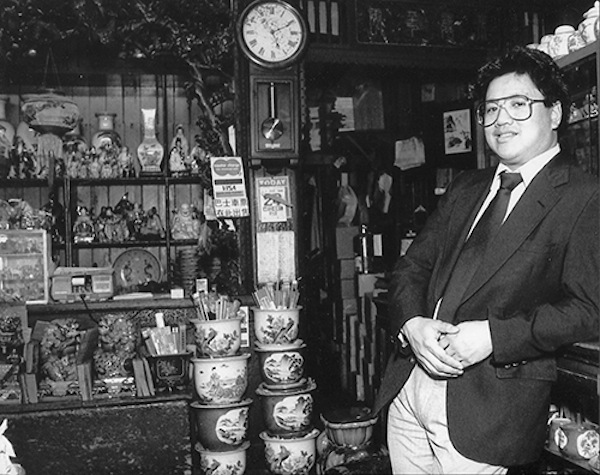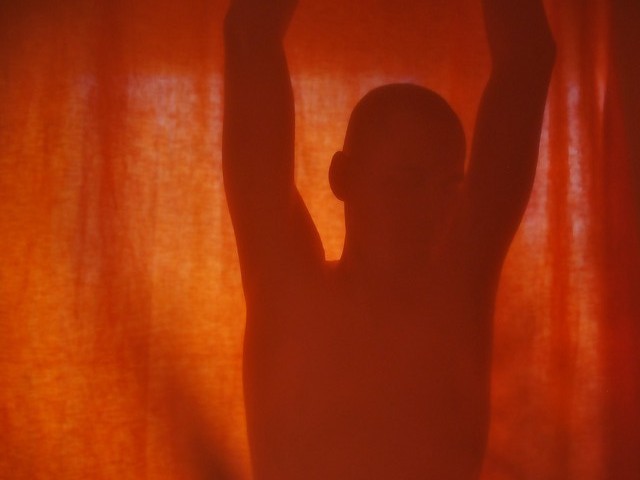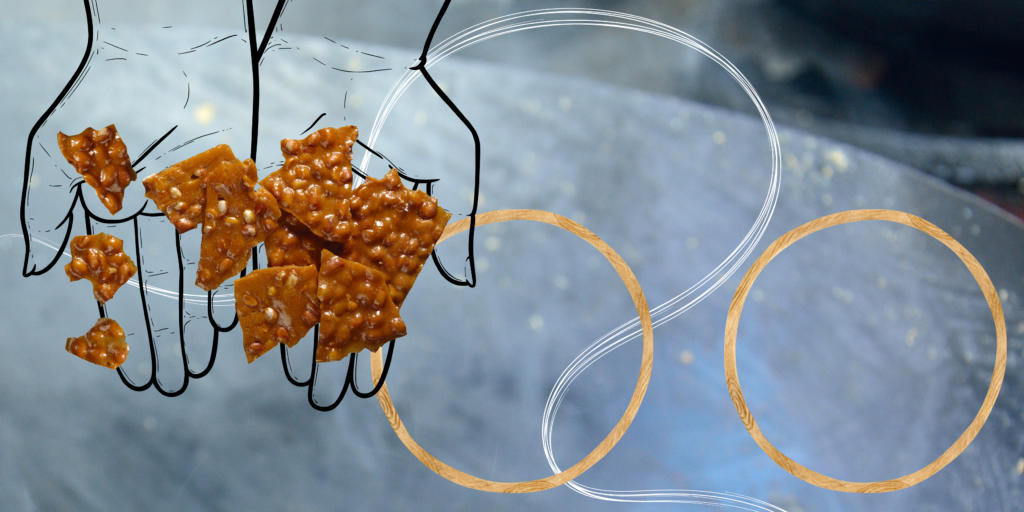“He could’ve walked into Harlem and everybody knew ‘im. He could walk into Spanish Harlem, everybody knew him. The gangsters knew him and respected him because he stood up to them…”

January 26, 2014
Last Thursday, more than 300 people gathered at True Light Lutheran Church on Worth Street in Manhattan to remember one of Chinatown’s biggest personalities.
Paul J.Q. Lee died of a heart attack on January 18 at age 63. For many, he was a walking embodiment of Chinatown-–its history, its concerns, and its boisterous character. His grandfather Lok B. Lee founded what used to be Chinatown’s oldest store, Quong Yuen Shing, at 32 Mott Street in 1891. Paul, who was born in 1950 and grew up above the store, eventually ran it under the name “Mott Street General Store” until it closed in 2003. He was baptized, confirmed, and married just around the corner, in the same church where Thursday’s memorial was held. Paul was married to his wife Janny (whom friends called “The Hong Kong Princess”) for 29 years, until her death from cancer in 2008. At the time he died, he was engaged to healthcare worker Christina Lau.
I first met Paul Lee three months ago, when I was assigned to cover Chinatown for this publication. In the first few weeks, as I developed contacts in the neighborhood, I heard the words, “You gotta talk to Paul!” more times than I can remember.
Apparently, he was an unofficial advisor for journalists covering Chinatown. I soon found out he was many other things as well: an activist, actor, small business owner, district leader candidate, mentor to local teens, New York City Housing Authority borough coordinator. And, judging from the standing-room crowd at the memorial, just about everyone knew him.
For several hours before the 6pm service, people filtered into the church to mingle and pay their respects. I stood for a long while in the entrance hall, absorbing story after story about Paul. Everybody had one.
“I was in ‘Year of the Dragon’ [a 1985 Michael Cimino movie] with Paul,” said Geoff Lee, an actor and musician who grew up on Mott Street with Paul, and did Boy Scouts with him as a child. “I was in ‘Year of the Dragon’ because of Paul,” he added.
Paul himself appeared in the movies “Big” and “Big Trouble in Little China.” He loved entertainment, said journalist and friend Richard Woo, who had installed himself in the lobby as an official greeter of sorts, directing any lost-looking guests towards tea and coffee in the basement.
“When they closed Park Row after 9/11, Paul was out there every day, protesting.”
“He was the guy to bring Chinese journalists to a Broadway show for the first time-–Miss Saigon. He brought Hong Kong horse racing to the Meadowlands. He brought Hollywood to Chinatown!” said Woo.
Then there was Paul’s activism.
In 2001, when the MTA planned to close the Grand Street subway station for four years, Paul helped organize protests, Woo recalled, and “got it to stay open.” And, he added, “When they closed Park Row after 9/11, Paul was out there every day, protesting.” That protest was less successful, and Paul blamed the NYPD’s closing of the major Chinatown thoroughfare for putting his store out of business.
As Woo and I stood talking, Congresswoman Nydia Velázquez, the first Puerto Rican elected to the US House of Representatives, swept in with her own memory.
“I always have a special place in my heart for him,” said Velázquez. “Since day one, when I was campaigning for the first time, 21 years ago, he was there with me. A great heart, who cares so deeply about this community.“
“Paul took her around, introduced her to everyone,” whispered Woo.
Two military officers appeared. “Oh yeah,” added Woo. “Paul was the first one to introduce free scholarships to young people who want to be doctors in the military. His father was a veteran.”
“He was one of our biggest supporters,” said Lieutenant Colonel Michael Stinnet, who recruits for the US Army in the five boroughs. “Pretty much anybody who was interested in joining the army, if they were Chinese, Paul got them set up with us.” The officers left, and in walked Reverend Raymond Nobiletti of the Church of the Transfiguration, a Catholic church across the street from Paul’s apartment.
Chinatown activist and photographer, Corky Lee, strolled up to chat…“You gonna give me a John Hancock when we try to get Mott Street named after Paul?” he asked the Reverend.
“He was a great friend. I’ve been here for 22 years and just about every day, I’d walk out my front door and there was Paul outside, across the street. And Paul and I…well, we’d solve the problems of the world,” said the Reverend, and laughed.
Chinatown activist and photographer, Corky Lee, strolled up to chat. He had taken the 1988 photo of Paul that was displayed at the sign-in table. “You gonna give me a John Hancock when we try to get Mott Street named after Paul?” he asked the Reverend. The Reverend agreed.
Then Corky Lee recounted the quote he was proud to have given Downtown Express earlier that week. “Paul was the Chinese-American Al Sharpton!”
Like Sharpton, Paul Lee had a memorable way with words.
During our first phone chat, and then again when we met for coffee at the Silk Road Café below his Mott Street apartment, Paul had talked my ear off, in his signature profane but good-humored way, about the state of city politics, 1970s radicalism, his old acting days, and how to gauge gentrification in Chinatown (check out the Laundromats–“half the business now is all white folks”). White folks he disliked were “lowlife little colonialists.” Michael Bloomberg was “Caesar Maximus Bloomberg.” But he was equal opportunity in his saltiness. Any Chinese guy he didn’t like was “this little Chinese asshole.” Or maybe that was Chinese people he did like.
He himself was a “Chinatown cockroach” and a “rat bastard.” I took that to mean he considered himself unstoppable. Judging from the chatter of friends that day, most would agree with that assessment.
White folks he disliked were “lowlife little colonialists.” Michael Bloomberg was “Caesar Maximus Bloomberg.” But he was equal opportunity in his saltiness. Any Chinese guy he didn’t like was “this little Chinese asshole.” Or maybe that was Chinese people he did like.
“Paul always spoke out about things, whether he’d win or lose,” said Corky Lee. “He’d say, ‘This is where I stand. If you’re with me you’re with me. If you’re not–-maybe some other time.”
Kevin Peacock, a colleague of Paul’s from the housing authority, later delivered a eulogy in which he too recalled Paul’s frank ways: “He had a saying–‘Shut uuuuuuup!’”
Everyone in the room laughed.
During one of our talks, Paul gave me some unforgettable career advice via a story about taking a group of Columbia University Journalism students on a tour of Chinatown. Sig Gissler, the former Pulitzer Prize administrator at the University, had been a classmate of Paul’s at Lake Forest College. Gissler used to send a class of 30-40 graduate students to meet Paul every year.
“I would bring them to Chinatown, and I would just rip them a new asshole. I’d say, ‘Okay, listen, you guys are all here, you’re all accomplished, and you’re all lazy sacks of shit. And you know it and I know it. And the reason why I say that…is you’re gonna meet a source in Chinatown. The first source that speaks English – that becomes your bible. You never challenge anything they say after that. You never research. And that’s true. And don’t take offense to this, my Columbia Journalism School student, that I’m picking on you, because it’s the same for the New York Times, and The Daily News, and the New York Post. They’re lazy sacks of shit, as you are. And they get paid a lot more for it!”
Also helpful were Paul’s inside tips on which of the old fogeys in Chinatown would hand out the largest amounts of red-envelope money. One prominent community figure, he claimed, was known to slip hundreds to pretty young women.
“At Chinese New Year, be around – you will make money. And the biggest joke of all is – stand next to him, you’ll be his latest girlfriend – and you don’t have to give up the sex! This guy is hysterical. You gotta see it; when you see it you’ll be laughin’ your ass off. And I’ll be walking by, going, ‘I told you so! Bye bye!’”
Back inside the chapel, Felipe Luciano, a former journalist for Channel 4 and Fox News and now a union organizer, was speaking to Patricia Lee Farley, Paul’s sister.
“He was the best friend of the Puerto Rican and black community, I’m telling you. He could’ve walked into Harlem and everybody knew ‘im. He could walk into Spanish Harlem, everybody knew him. The gangsters knew him and respected him. Because he stood up to them. He stood up to the On Leong [gang] here. The tough guys knew him–everybody did! Hollywood knew him!”
“Steve Wynn knew him!” added John Mok, Paul’s cousin.
Paul had met Wynn, the casino mogul, in his work arranging tours and producing shows with casinos.
Later, Paul’s old college friend Jonathan Atkin gave a eulogy in which he recalled the time a casino official spoke to Paul in pidgin English. “His response was pure New York waterfront!” said Atkin.
Looking at Atkin, I flipped back to the notes from my first coffee meet up with Paul, and wondered if this was the man Paul had cheerfully referred to as “this cracker I went to school with.”
Throughout the eulogy, Atkin also mentioned Paul’s role in advising on shiitake mushroom farming in Virginia, in bringing Chinese table tennis teams to the US, and in hosting a party for returning Asian soldiers in honor of the military’s 237th birthday. There was also the time Atkin nearly drove off the Hutchinson River Parkway at the sight of a 20-foot-high billboard of Paul, in an ad for the NY State Lotto, and the time Paul made Robin Williams laugh during an audition. Photos of Paul with Williams were being projected in a slideshow to the side of the hall, along with photos of Paul on Wheel of Fortune, with the Chinese dissident Chen Guangcheng, and with former City Comptroller and mayoral candidate John Liu, who was in attendance that day.
There was also the time Atkin nearly drove off the Hutchinson River Parkway at the sight of a 20-foot-high billboard of Paul, in an ad for the NY State Lotto, and the time Paul made Robin Williams laugh during an audition.
I approached Liu after the service, knowing that Paul had a glowing opinion of him. “He’s a god to the Chinese community!” he had said multiple times.
“It’s hard to believe that he’s gone. He was such a figure and a force in Chinatown and in New York City,” said Liu. “He took me under his wing very early on when I was first running for city council — I don’t know where he came from, just came out of the blue — and gave me a lot of good advice.”
Out on the street, a few of Paul’s colleagues from the housing authority stamped their feet in the cold.
“Did you see those wreaths?” asked one woman in the group. “That church was packed! That church was packed!”
As I headed to the subway, feeling closer to Chinatown than I ever had before–-feeling closer, in fact, to New York City–the words that stuck with me were those of Geoff Lee, the former fellow boy scout.
“There was nobody like Paul because Paul knew everybody. He was part of the glue that connected everybody together.”


